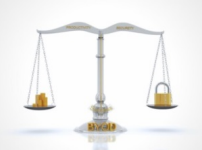Despite the turn of the calendar to 2015, no case law squarely addresses Bring Your Own Device or “BYOD” issues and case law on discovery from mobile devices in general is scant. A few recent decisions offer some guidance in otherwise murky legal waters.
A plaintiff’s destruction of text data attracted sanctions in one case. See Calderon v. Corporacion Puertorrique a de Salud, 2014 WL 171599 (D.P.R. Jan. 16, 2014) (adverse inference imposed where a party “cherry-picked” evidence by selectively destroying harmful text messages). Some courts have been less likely to order discovery from purely personal devices. See, e.g., Bakhit v. Safety Marking, Inc., 2014 US Dist LEXIS 86761 (D. Conn. June 26, 2014) (motion to inspect plaintiffs’ co-workers’ personal cell phones denied; court persuaded by privacy interest implications where plaintiffs had not sought similar evidence through other discovery); Federico v. Lincoln Military Housing, LLC, 2014 WL 7447937 (E.D. Va. Dec. 31, 2014) (court declined to impose sanctions for text messages lost from personal devices where there was no showing that data was relevant and loss occurred as the result of routine operations before a clear duty to preserve existed).
If nothing else, the above-cited cases make clear that discovery obligations related to data stored on personally-owned mobile devices remain largely amorphous, and that parties should consider mobile device data preservation when faced with litigation, whether potential or realized.
